#i like the term digital mixed media when the piece defies the boxes
Explore tagged Tumblr posts
Note
I more or less agree with the idea that it's good to be honest about an artwork’s production, but i also think it can get more complicated than is it or is it not ai art.
Is a watercolor recreation of an ai piece ai art? Every brushstroke thanks to a fleshy hand, but the colors composition & the like are all the machine's.
Is digitally painting on top meaningfully different from projecting the same image on a canvas or using the grid method to copy a reference?
What amount of post genoration transformation makes it no longer ai art? Is there one?
in my experience you typically only state a collages source images if it matters to the works statement, so to always specify only one type of collage fodder any time it rears it's head feels weird & counter intuitive to me & my goals (computer generation eventually being as pearl clutch worthy as using a photoshop type program is now).
Is a collage made up of 50% “organic images” and 50% computer generated ai art in the end?
70% “organic”? 90% computer generated?
One ai image that is most of the final piece but with a dozen smaller “organic” images incorporated throughout?
It is of equal difficulty to collect pictures from a museum archive or pexels as it is to find neat stuff scrolling through midjourney, thus my process as a collager can be unchanged between the two sources, nary a prompt typed by me.
Is it still ai art if the process/final product is basically indistinguishable from regular digital collage?
Is making ai art the prompting or the choice to incorporate these tools at all?
Does it matter whether you found a source image or asked for it?
in conkclusion: imo it's probably good to be cautious of broad brushes and rigid boxes, especially when it comes to stuff like art.
Honestly I’d just prefer it if people simply tagged AI images and the like, as AI so I could filter it and not deal with it. Yet I see a lot of people post AI images and not bother with doing the bare minimum of tagging it :/
100% with you. AI art is a different medium and should be tagged / sorted / catalogued / curated as such
#4 my own tagging practice it matters 2 me if i genorated anything for that specific piece & whether it matters 4 the statement#& 4 clarity i dont think these questions have right answers#i just have many thoughts head full & refuse 2 let it b my problem alone (sry)#% of the final piece also matters 2 whether i tag though i do debate myself over it every other time lol#also i guess if u just want organic oil paintings or whatever u should be using museum archives cus google sucks ass#i bring up both collage & painting cus i gort experience w/ them in this context#& cus theyre common in more 'traditional' computer genorated art (collaging together diff genortation and over painting to smooth it over)#i like the term digital mixed media when the piece defies the boxes#and if u evr ask about source images 4 any of my pieces ill b more than happy 2 talk about it lol#i guess i always come back to 'would we treat a photoshop type like this?' cus tbh i dont c enough of difference between these tools#2 justify treating them so differently#i am meowing
150 notes
·
View notes
Text
How Many Republicans Running For President
New Post has been published on https://www.patriotsnet.com/how-many-republicans-running-for-president/
How Many Republicans Running For President
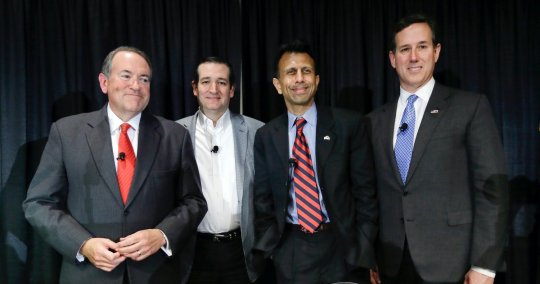
Sen Tom Cotton Of Arkansas
How GOP retirements are making the 2022 midterm elections a Trump referendum
Cotton, 43, has been preparing for a potential presidential run since before the 2020 election even happened, visiting the first-in-the-nation primary state New Hampshire last year to campaign for local Republicans. I expect Ill be back to New Hampshire again in the future, he told Insider last October. The betting site PredictIt currently ranks Cotton alongside Pompeo, Rubio and Hawley.
Cotton represented Arkansas in the U.S. House for two terms before becoming a senator in 2015. His first brush with national prominence came in 2006 when he was serving in Iraq as an Army lieutenant. Cotton sent a letter to the editor at The New York Times criticizing their story about the U.S. terrorist finance tracking program. Cotton called for the paper to be prosecuted for revealing the program, and though his letter wasnt published in the Times, it was picked up by the conservative blog Power Line, which Cotton copied on his petition to the Times.
Another Cotton opinion piece did later make it into the Times. His controversial 2020 op-ed, headlined Send In the Troops about using the military and an overwhelming show of force against protesters and rioters following the death of George Floyd, led to the resignation of Times editorial page editor James Bennet. Cotton referenced the op-ed in January after the attack on the Capitol, and said in a statement that those involved should face the full extent of federal law.
What Is A Voter
The Top Two Candidates Open Primary Act, which took effect January 1, 2011, created “voter-nominated” offices. The Top Two Candidates Open Primary Act does not apply to candidates running for U.S. President, county central committees, or local offices.
Most of the offices that were previously known as “partisan” are now known as “voter-nominated” offices. Voter-nominated offices are state constitutional offices, state legislative offices, and U.S. congressional offices. The only “partisan offices” now are the offices of U.S. President and county central committee.
Elites Still Matter Enormously In Primaries
George H.W. Bush
Just when journalists and political scientists were ready to proclaim the death of parties in favor of candidate-centered politics, the pendulum started to swing back.
Over the past 35 years, incumbent presidents have had zero problems obtaining renomination even presidents like George H.W. Bush and Bill Clinton who alienated substantial segments of the party base with ideological heterodoxy during their first term. Reagan and Clinton both passed the baton to their vice presidents without much trouble.
Insurgent candidates who caught fire with campaigns explicitly promising to shake up the party establishment Gary Hart in 1984, Pat Robertson in 1988, Jerry Brown in 1992, Pat Buchanan in 1996, John McCain and Bill Bradley in 2000, Howard Dean in 2004, Mike Huckabee in 2008, and Rick Santorum in 2012 repeatedly gained headlines and even won state primaries.
But while 1970s insurgents were able to use early wins to build momentum, post-Reagan insurgents were ground down by the sheer duration and expansiveness of primary campaigns.
Tactics that worked in relatively low-population, cheap states like Iowa and New Hampshire simply couldnt scale without access to the broad networks of donors, campaign staff, and policy experts that establishment-backed candidates enjoyed.
Its this invisible primary among party elites that truly matters.
Endorsements were better at predicting the outcome than polls, fundraising numbers, or media coverage.
Don’t Miss: How Many Republicans Are In Congress 2016
Fragment Of Lincoln Speech To Kentuckians
A fragment of President Lincolnâs First Inaugural Address is attached to this speech intended for Kentuckians, indicating that it was prepared prior to his journey from Springfield to Washington. The assumption is that Lincoln either planned to receive a delegation from Kentucky during his stop in Cincinnati, or to make a quick excursion into his home state to deliver the speech. The speech itself confirms Lincolnâs belief that there was nothing he could say to appease the South without betraying the principles upon which he had been elected.
Abraham Lincoln. Speech intended for Kentuckians, February 1861. Holograph letter. Robert Todd Lincoln Papers, Manuscript Division, Library of Congress Digital ID # al0082p1, al0082p2
Bookmark this item: //www.loc.gov/exhibits/lincoln/the-run-for-president.html#obj23
Newsom Wins By A Little


Defeating the recall by a narrow margin significantly less than his 24-percentage-point beatdown of Republican John Cox in 2018 could weaken Newsom as he heads into reelection next year.
If he limps out of this, there will be some blood in the water, said Steve Maviglio, a Democratic political consultant. Another Democrat will think they could do better and they can take him on.
Republicans who backed the recall could claim a kind of victory from weakening the governor, even if they failed to throw him out of office. Some of them already are.
Hes spent $80 million, hes in the fight of his life, hes called in the president and the vice president, said Anne Dunsmore, a recall campaign manager.
Hes taking it seriously and hes using a lot of resources to combat us Weve already won. Weve made our point.
A narrow win would also likely trigger lawsuits over the validity of the election results. Conservative commentators have already begun saying, with no evidence, that voter fraud will be to blame if Newsom wins. Former President Donald Trump issued a statement Monday calling the recall another giant Election Scam.
Elder has said he plans to file lawsuits over election irregularities. His website links to another site that asks voters to sign a petition demanding a special session of the California legislature to investigate and ameliorate the twisted results of this 2021 Recall Election of Governor Gavin Newsom.
You May Like: Can The Democrats Stop Trump
Emboldened ‘unchanged’ Trump Looks To Re
The set of advisers around Trump now is a familiar mix of his top 2020 campaign aides and others who have moved in and out of his orbit over time. They include Miller, Susie Wiles, Bill Stepien, Justin Clark, Corey Lewandowski and Brad Parscale.
While his schedule isn’t set yet, according to Trump’s camp, his coming stops are likely to include efforts to help Ohio congressional candidate Max Miller, a former White House aide looking to win a primary against Rep. Anthony Gonzales, who voted to impeach Trump this year; Jody Hice, who is trying to unseat fellow Republican Brad Raffensperger as Georgia secretary of state after Raffensperger defied Trump and validated the state’s electoral votes; and Alabama Senate candidate Mo Brooks, according to Trump’s camp.
Trump’s ongoing influence with Republican voters helps explain why most GOP officeholders stick so closely to him. Republicans spared him a conviction in the Senate after the House impeached him for stoking the Jan. 6 Capitol riot, House GOP leaders have made it clear that they view his engagement as essential to their hopes of retaking the chamber, and Rep. Liz Cheney, R-Wyo., was deposed as Republican Conference Chair this year over her repeated rebukes of Trump.
Those numbers suggest that Trump could be in a strong position to win a Republican primary but lose the general election in 3½ years. A former Trump campaign operative made that case while discussing Trump’s ambitions.
Republican Candidates Running For The Us 2020 Election
Bill Weld was married twice and has five children.
Weld ran for vice-president as a Libertarian on the Gary Johnson ticket in the 2016 presidential election.
As a conservative, Weld is strongly pro-choice on abortion issues.
The presidential race is on and the candidates are being whittled down to the very few. Who is running on the Republican side? Current President Donald Trump is going for re-election, and the only candidate now challenging him for election as president of the US this coming November 3rd, 2020 is Bill Weld, a former Massachusetts governor.
Also Check: Why Do Republicans Want To Take Away Health Care
Death Threats And Conspiracy Theories: Why 2020 Won’t End For Election Officials
Kelley said members of his staff have been followed and videotaped while picking up ballots from drop boxes in recent weeks.
“I’ve been doing this almost 18 years, and I would say the end of ’19 leading into ’20 and then all the way up to today has been the most stressful period of my career,” Kelley said.
Up until now, the fraud claims have been mostly isolated to national campaigns and the occasional statewide race.
But Jamie Shew, who oversees elections in Douglas County, Kan., said he worries the tactic could trickle down to local races, where margins are often extremely thin.
“Even in candidates were going to ‘there was fraud’ rather than it was a bad campaign,” Shew said. But “2020 took it to a whole new level. And I don’t think that’s going to go away.”
In Douglas County last year, for instance, a County Commission race was decided by just three votes. Both candidates running accepted the results after a hand recount, but Shew said he worries next time, they might not be so lucky.
‘americans Will See The Current Two Options Are Not The Choice’
Donald Trump to decide on 2024 Presidential run| White House | Latest English News | World News
Jade Simmons is a multi-hyphenated woman. A former beauty queen, professional concert pianist, motivational speaker, rapper, mother, and ordained pastor.
As she puts it, she is an unconventional candidate, “but these are unconventional times”.
“This seemed to me to be a time when we couldn’t afford to do business as usual,” she says. “I’m the daughter of a civil rights activist, and the way my father raised me was that if you see voids, if you see injustices, you need to ask yourself if that might be you that needs to be leaning in.”
She says her goal is to create equal access to opportunity, through economic, educational and criminal justice reform. And in that spirit, she’s aiming to run “the least expensive campaign in the history of our nation”.
“We think it’s abominable that it costs now almost a billion dollars to run for president when the qualifications are that you are 35 years old, a US-born resident, and have lived here 14 years,” says Ms Simmons. “We’d rather spend that money on helping people.”
Full coverage of the US election
While the Republican and Democratic nominees will be on the ballot in all states, independents must meet an array of state deadlines and access requirements.
“I know it sounds wild, given the history of independents! We believe that if we stay standing long enough, there’s still some more disruption coming in – that most Americans are going to see that the current two options are not the choice.
Read Also: How Did Republicans Do In The Primaries
Former Us Ambassador To The United Nations Nikki Haley
Haley, 49, stands out in the potential pool of 2024 Republican candidates by her resume. She has experience as an executive as the former governor of South Carolina and foreign policy experience from her time as U.S. ambassador to the United Nations.
Haley was a member of the Republican Partys 2010 tea party class. A former South Carolina state representative, her long shot gubernatorial campaign saw its fortunes improve after she was endorsed by Sarah Palin. Haley rocketed from fourth to first just days after the endorsement, and she went on to clinch the nomination and become her states first female and first Indian-American governor.
As governor, she signed a bill removing the Confederate flag from the state Capitol following the white supremacist attack at the Emanuel African Methodist Church in Charleston. She left office in 2017 to join the Trump administration as U.S. ambassador to the United Nations, and Quinnipiac poll found she was at one point the most popular member of Trumps foreign policy team.
I think that shes done a pretty masterful job in filling out her resume, said Robert Oldendick, a professor and director of graduate studies at the University of South Carolinas department of political science.
Haley criticized Trump following the Jan. 6 attack on the Capitol by his supporters, saying she was disgusted by his conduct. Oldendick said he thought her pretty pointed criticism of the president will potentially cause some problems.
Political Primaries: How Are Candidates Nominated
Article two, section one of the United States Constitution discusses the procedures to be followed when electing the president of the United States, but it does not provide guidance for how to nominate a presidential candidate. Currently, candidates go through a series of state primaries and caucuses where, based on the number of votes they receive from the electorate, they are assigned a certain number of delegates who will vote for them at their partys convention.
Earlier party conventions were raucous events, and delegates did not necessarily represent the electorate. Mrs. J.J. McCarthy describes her convention experience:
I can picture the great Democratic convention of 1894 at the old coliseum in Omaha right now I can hear the Hallelluiahs of the assembled. Oh how I wish I had back the youth and the enthusiasm I felt that night, I jumped on a chair and ask that by a rising vote the nomination be made unanimous, how the people yelled, how the packed gallories applauded, it cheers an old man now to think about it.
Politics played a big part in the life of this town years ago. Campaigns were hot, and there was always a big celebration afterwards. Votes used to be bought that is before the secret ballot was adopted. Some sold em pretty cheap. I remember one old fellow who sold out to one party for a dollar then sold out to the other for the same price.
Recommended Reading: Who Controls The Senate Republicans Or Democrats
Start Your Day With Laist
For nearly 25 years, Gov. Gavin Newsom rose the ranks of California politics without ever losing an election, buoyed by connections to powerful San Francisco Democrats and a willingness to take risks like sanctinoing same-sex marriage that put him at the vanguard of his party.
Then came the coronavirus pandemic.
The governors attention-grabbing style implementing the nations first stay-at-home order in March 2020, then dining at an exclusive wine country restaurant as he told people to stay home to avoid a winter surge rubbed enough Californians the wrong way that 1.7 million voters launched the second gubernatorial recall in state history.
And yet to fight back, the Democratic leader of one of the nations bluest states returned to what helped him succeed in the early days: connections to fellow Democrats and well-calculated policy risks this time, to fight COVID-19.
At a campaign rally in Long Beach on Monday night, President Joe Biden heaped praise on Newsoms management of the pandemic. Newsom this summer made California the first state in the nation to require vaccines for health care workers and state employees.
Gavin Newsom has had the courage to lead, to stand up for science, Biden said. Hes been one of the leading governors in the nation protecting people and vaccinating his state.
Can you imagine him being governor of this state? You cant let that happen, said Biden, who beat Trump in California last year .
Here Are The Republicans To Keep An Eye On For 2024


Republicans are paying extra attention to a number of Republican governors, senators, and former officials that might consider making a run for president in 2024.
The contenders come from various contingents of right-leaning thought, and will be fighting to capture parts of former President Donald Trumps base. Whichever Republican hopeful prevails will not only become the Republican Partys nominee, but also help determine the ideological trajectory of the Republican Party in the post-Trump era.
Vice President Mike Pence
Its not uncommon for vice presidents to follow up their stint as second-in-command with a run for president. Former President John Adams, the nations second president, was Americas first vice president under President George Washington. More recently, President Joe Biden became the 46th president four years after he ended his eight-year tenure as former President Barack Obamas vice president.
Vice President Mike Pence might decide to do the same, but Pences relationship with Trump seems to be severely tarnished after Pence did not contest the certification of the Electoral College results, as reported by The Hill.
Senator Ted Cruz
Texas Republican Sen. Ted Cruz could run for president again come 2024 after he defended his senate seat in 2018 from Democratic challenger Beto ORourke. Cruzs bid for the presidency in 2016 ended in failure as Trump captured the Republican Partys nomination.
Senator Josh Hawley
Don’t Miss: Are There More Rich Republicans Or Democrats
Whos Running For President In 2020
Former Vice President Joseph R. Biden Jr. is the presumptive Democratic nominee to challenge President Trump in the 2020 race.
The field of Democratic presidential candidates was historically large, but all others have dropped out. Mr. Trump had also picked up a few Republican challengers, but they have also ended their campaigns.
Running
Has run for president twice before.
Is known for his down-to-earth personality and his ability to connect with working-class voters.
His eight years as Barack Obamas vice president are a major selling point for many Democrats.
Signature issues: Restoring Americas standing on the global stage; adding a public option to the Affordable Care Act; strengthening economic protections for low-income workers in industries like manufacturing and fast food.
Main legislative accomplishment as president: a sweeping tax cut that chiefly benefited corporations and wealthy investors.
Has focused on undoing the policies of the Obama administration, including on health care, environmental regulation and immigration.
Was impeached by the House of Representatives for seeking to pressure Ukraine to smear his political rivals, but was acquitted by the Senate.
Signature issues: Restricting immigration and building a wall at the Mexican border; renegotiating or canceling international deals on trade, arms control and climate change; withdrawing American troops from overseas.
Ended her campaign in March 2020 and said she would back Mr. Biden.
0 notes
Text
One by one, like a painful slow drip from a finite source, we lose people to time, people who contributed positively to the world in ways political, artistic, scientific. One by one. Considering the sum total is simply too great, we need stagger. For those who share my year of birth by a margin of three years give or take on either side, we’ve been lucky. Lucky in the sense that the stagger has been long and wide. Over the last decade we’ve lost some important people, particularly important to our early life, the exit of our single digits and the early part of our teens. Early on I was crushed by the death of Sidney Lumet, in 2011, a giant of the film community. I wrote about his passing back then, at the point of worst emotional pain, as bad as one can feel without being a family member or close friend. Since then we’ve lost Cimino. We’ve lost Nichols. We’ve lost Varda. We’ve lost Akerman. We’ve lost Hooper and Romero. As we brine in our Gen X jar, we unfortunately transition from sniper fire to machine gun spray. Legato becomes staccato. People of my age group watch in horror as heroes depart. It’s no different of any other age group, perhaps only more enhanced by the increased prevalence of mass media over the course of the last century and into ours. Distance and folklore becomes nearness and screens. In either case we involve ourselves in the lives of others, in ways good and bad. At worst we connect through this urge to pillory those who are guilty of our very same sins. At best, we mourn the passing of a public figure we’ve come to acknowledge, without their knowledge, as a friend. Hopefully out of benevolent interest, that last part.
So I say with the melancholy of a film fanatic that came of age in the 80’s and the heft of a life, if averages count, mostly lived at this point, that the recent passing of one Alan Parker left me despondent. Perhaps not for the fate of the world, but definitely for the fate of film as a malleable form that might struggle with the twin purposes of art and commerce and succeed somehow. Film fanatics, or as I prefer to refer to myself and others, Cinegeeks, often find themselves drawn to figures within the film world considered 2nd or 3rd tier interviews, whose body of work might contain two or three masterpieces amongst a body of mediocrity, or who might have a mostly or even highly successful box office record but never get critical acclaim. Fanatics like to champion the underdog. It’s our nature. To a degree Alan Parker found himself in this category. Partially because his CV didn’t fit neatly into the Auteur Theory folder. Partially because he didn’t play the normal Hollywood game. It’s sometimes overlooked that the boldest outsiders during that New Hollywood era knew how to play the studio/PR angle and did so like sawing a harp from hell. I’m looking at YOU, Coppola and Scorsese.
Parker had artistic ambitions, some would even say pretentious ambitions, and yet I defy anyone to observe his body of work and not see a blue-collar hardscrabble mentality etching away at the base of all his films. He failed sometimes, but in all endeavors he struggled not just to ensure proper light diffusion, but to connect the audience to the scene that was unfolding and the characters within all of that art direction and brilliant cinematography. In his debut feature, the cult classic BUGSY MALONE, he invited audiences to indulge in the lark of basically watching an updated Little Rascals film as whipped-cream St. Valentine’s massacre. With an infectious soundtrack by Paul Williams. And it worked and still works. In MIDNIGHT EXPRESS, he sought nothing less than to put you through the Turkish prison system at its most barbaric. And damn, did he succeed. In FAME, he sought to enroll you in La Guardia High, the School for the Performing Arts, partially ushered in by one Mr. Lumet, and he brought you into the NYC streets to join the dance. In SHOOT THE MOON, he dragged you through the broken glass and nails that is a brutal divorce. Most critics still feel it’s the film that’ll never be topped on that topic. And yeah. It’s punishing to this day.
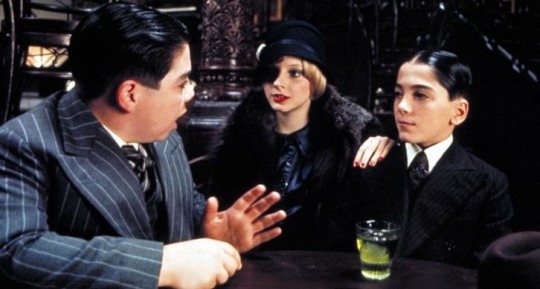
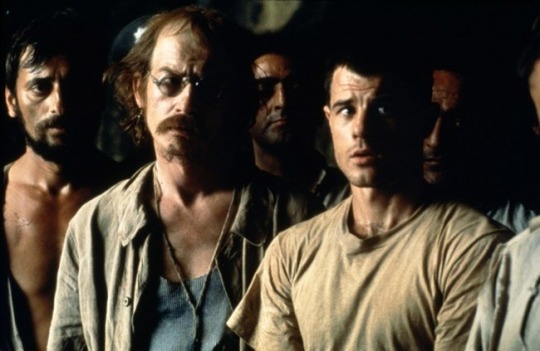
That’s just his first four films. He followed MOON in the same year with his cinematic distillation of PINK FLOYD’S THE WALL, as ambitious, reckless, insane, obtuse and inspiring as any art film dared to be. He waged one of the bravest, constant battles between the band, their label, his studio and the inevitable lash or backlash from the critics and the crowds as any director dared in that decade, which had now, even by 1992, belonged to Reagan and Thatcher’s crowd. It worked, it was a success on its own terms. It stood with QUADROPHENIA as one of the few successful adaps of a “RockOpera” to screen. And it would serve as an insanely influential piece of cinema/album mashup. I can’t think of another film that’s even attempted to match it to this day.

Parker’s true gift was that of exploration, and this was evinced by his sojourn from cinematic genre to cinematic genre. Like great directors before him, he felt the need to examine and exult in them all. He turned after 1982’s twin trials to what many referred to as William Wharton’s “un-filmable” novel. Parker found a way to film it, and in the process crafted a minor masterpiece, and the first film in his American Gothic trilogy. BIRDY is about so many things; the horror of war, the futility of grand romantic dreams, the last days of glorious, unweighted childhood. It succeeds in all those ambitions, but what it is squarely about is the healing power of friendship, of that bond between brothers that even the trauma of battle cannot best. He accomplished this in two different time periods and two different venues; the 60’s early and late, as disparate as a decade could get from itself; then the wide, economically depressed funland expanse of post-WW2 Brooklyn, against the claustrophobic, chiaroscuro lit cell of the VA, where the only shadow to hide within lies beneath the mottled cot. All of Parker’s CV can be described as character studies of one form or another. Here he began a three film sojourn into America’s pockets, its secret soul and even its original sins. He’d leave the punishing abandonment of what once was the City of Brooklyn as it stood circa 1962, for a far more insidious and painful abandonment, one of a whole swath of the country and of its stolen populace.
ANGEL HEART was ostensibly a mashup of horror and noir, a neat trick that any successful director would’ve been drawn to, especially in the MTV 80’s, a music video era (greatly inspired by directors like Parker, I might add) that found itself drawing on the tropes of past cinema genres in a highly stylized way. The synopsis implies a simple morality tale, a private eye hired by a seemingly nefarious talent agent to track down the client who’s eluded him. Perhaps by supernatural means. Parker expanded on the location by quickly resetting the action from Brooklyn to New Orleans, after a quick trip through Harlem. White culture has to answer to and for black culture in America, and Parker employed this almost caricature smoke-and-topcoat shamus to do this investigation. There is great butchery in ANGEL HEART, which I’ve always believed reps the butchery of slavery and the Jim Crow era. There are bold implications and terrible consequences for what we now term “cultural appropriation”, from Johnny Favorite’s Depression-era crooner stealing from black artists to the Krusemark’s adoption of the patchwork voodoo religion. Above all, there is guilt. There is a clear through line, as clear as Capt. Willard’s river to Kurtz, toward White America’s brutality, ongoing. Harry is our surrogate, should we choose. He goes on his own journey of discovery that becomes, unwittingly and surely unwillingly, one of SELF-discovery. His final manic, desperate denial is the same as any who enjoy white privilege to this day while at the same time being wholly unaware of it: I know who I am. If ANGEL HEART is the one he’s going to be remembered for, I believe it’s this subtext, unplanned or otherwise, that will allow it the test of time well over the brilliant cinematography and perhaps Mickey Rourke’s finest performance. Parker would next attempt to expand on this subtext and present it as text, with very, VERY mixed reactions.

MISSISSIPPI BURNING was a project begun with noble intent, I believe. In an era where white men still got to tell the black narrative in America. While I forgive a lot of the film’s dramatic license, I fully agree with its detractors as well. 1988 was a tipping point for tone-deafness in the film industry. Had Parker made BURNING a decade or so prior, it might enjoy a better rep in the context of its time. The end of the 80’s demanded better. I’m a fan of this film, as a film, not as a history. In the same way I’m a fan of well-crafted cinematic narratives that have dated very poorly. The tragedy of MISSISSIPPI BURNING is not just that he made so well-crafted a film at a point in the timeline when something more inclusive, honest, and better representative of history was possible, it’s that he chose fiction for fiction’s sake. Nevertheless, it was the second and final Oscar nomination for direction he’d receive.
Parker remained in this wheelhouse of American guilt for 20th century wrong-doing. COME SEE THE PARADISE was an earnest attempt to depict, to REMIND America really, of the awful Japanese internment camps of the WW2 years, the venerable FDR’s greatest sin. At the height of his filmmaking powers he was unerring in his balance between stylistic pursuit and substance. Alas, with this effort and his previous, glow softened suffer, and the heart of the tale proved elusive as a result.
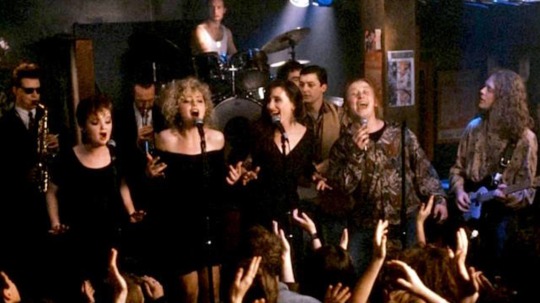
Maybe he had a moment of clarity then, after these ambitious but perhaps stultifying efforts, and decided to return to a genre that had stood him in good stead. Parker turned to the homespun Celtic kick of Roddy Doyle and decided to create a real-life soul/funk/r&b band from scratch for THE COMMITMENTS, which most will agree is his last great film, though his later fare has its champions, and fair play to them. For a director so well known for his meticulous prep and focus he fared incredibly well in filming wild abandon. Maybe it was a mode he needed to consciously shift into gear for, but once there he cooked quite a stew. The film delighted both critics and audiences, and also helped re-start a soul music resurgence, helped in no little way by the film’s pre-fab ensemble, who’d take to the road for a series of live shows with various members of the celluloid iteration in tow. Some might argue that he retreated to a stance that shied from his previous inquiries regarding the separation of cultures white and other, and the theft perpetrated by one on the other, and in doing crafted so populist an entertainment as to render the argument moot. That’s a fair assessment. Some others might argue that a truthful, passionate depiction of people inspired by others different from their living experience, plaintively plying their art, is honest work as well, no matter their skin color. The debate won’t go away. And it shouldn’t. In terms of moviemaking, though, Parker had fired on all cylinders. Perhaps for the last time.
The remaining decade-plus of his work was, in most estimations, workmanlike, with the odd Parker flourish here and there recognizable to his fans. THE ROAD TO WELLVILLE was an eccentric choice as follow-up, and also as navigation through the early days of a new and unsure decade (He’d already travelled the biz director-driven, to producer-driven, and was now in the who-the-hell’s-driving 90’s). It features several fine performances, from recent and deserved Oscar winner Anthony Hopkins to the still-finding-their-way Matthew Broderick and John Cusack, and its huckster-health theme does still resonate, or at least it SHOULD, as well today as then as late 19th century. If it ultimately found no target to spear, it remains a well crafted and intentioned work. EVITA was no sleepwalk-to the-Oscar gig, even though the resulting film is at best assessed as a dreamily-hued mess. Parker took on the challenge of a legendary broadway smash, one that Hollywood had been desperate to film for well over a decade. A lesser director would’ve turned the camera on and yelled “Sing!”. But Parker was one of the few who’d found success in the post-studio era with one of its warhorse genres, the musical, which had diminished, and decidedly felled such giants as Coppola and Bogdanovich at their peak or near-peak. It’s a noble effort, if it comes up short. It’s not quite empty Oscar-bait, but it’s well shy of a film with a purpose. He either directed or was gifted a great Antonio Banderas perf, and he did his damnedest with Madonna, which is sorta the theme of her career don’t send hate mail. He got a hard-won, decent turn out of her, perhaps not the magnetic dying star that the role demanded, but an actor giving her all. That’s still worth something, even if they’re miscast. For further evidence I direct you toward Matt Damon in THE TALENTED MR. RIPLEY.
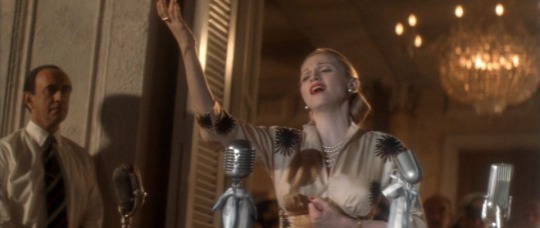
And here’s the part that I always hate to talk about. Parker was a director who, in my estimation, never sought validation, but always inspiration. It’s the source of his greatest works, and they remain some of the greatest of the post-studio years. He took his best swipe at an unlikely best-seller, Frank McCourt’s wildly successful but impossibly depressing ANGELA’S ASHES. Like EVITA, it had “prestige” built into it. Like EVITA, it was a package deal. Like EVITA, the studio expected some love from the Academy at the end of the day. I feel like Parker was thwarted from the start, tasked with this take of utter poverty and despondency while asked to chase the gold. Had the book come out sometime early in his career, had he discovered it and championed it, and then saw it through production and release, we may have been gifted something along the lines of a Ken Loach or even Buñuel at his most honest. The gilt and geld of the Hollywood studios, especially at that time competing with the newly-found prestige of the indies, precluded any chance at that, despite next-level perfs from Stephen Rea and Emily Watson. It��s a not-unworthy effort to seek out, especially if you're a Parker fan, but in some ways it may have signaled his ultimate abandonment of this art form. Maybe he felt he’d said enough. Maybe he felt he wouldn’t be allowed to say his piece on his terms anymore. Maybe he looked ahead at filmmaking in the new millennium and decided he’d not update his passport to this new continent. For reasons we never fully received, Parker was leaving.
His last film would be THE LIFE OF DAVID GALE, an anti-capital punishment screed that felt out of joint, and not due to the lack of effort from its stars, Kate Winslet and Christopher Plummer. But it’s an aimless effort, deprived of any real bite on a subject molten to a wide swath of the citizenry. It was met with mixed box office and mixed reviews. It left with nary a trace. And then, whether we realized it or not, so did Alan Parker.
It seemed to be a welcome retirement. At least in my following of my filmmaker heroes. I don’t believe I saw one item, one gossip piece, about a new Alan Parker project, about a studio extending him an offer on a prestige or even indie film. He popped up as interview subject and fairly frequently, and seemed to enjoy his status as thus. He’d crafted a remarkable body of work, and by all witness enjoyed remarking on it. He occasionally served as mentor, as when Christopher Nolan reached out to him. He’d definitely serve as defense attorney, especially when the subject of Mickey Rourke came up. He absolutely and most magnificently served as beacon to a whole generation of film lovers and future filmmakers, kids who were desperate in the corporate/production team/CAA 80’s to cling to films of their generation they could call their own. At a time when art and the so-called “auteur” was a dirty word in Hollywood he was able to put the work he’d crafted into your head and into your heart. I’m not sure if we’re gonna see another Alan Parker, and he’d be most upset by that notion, but if you’re reading this, and you find this possibility unacceptable, go grab a camera and be another Alan Parker. We’re waiting.
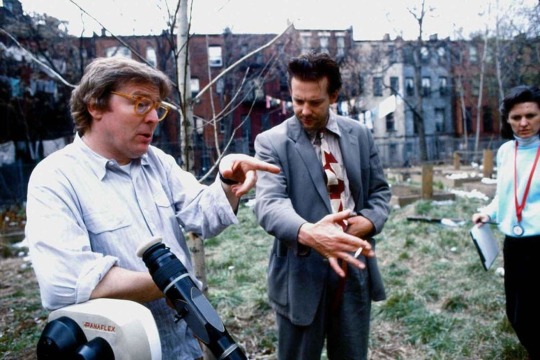
1 note
·
View note